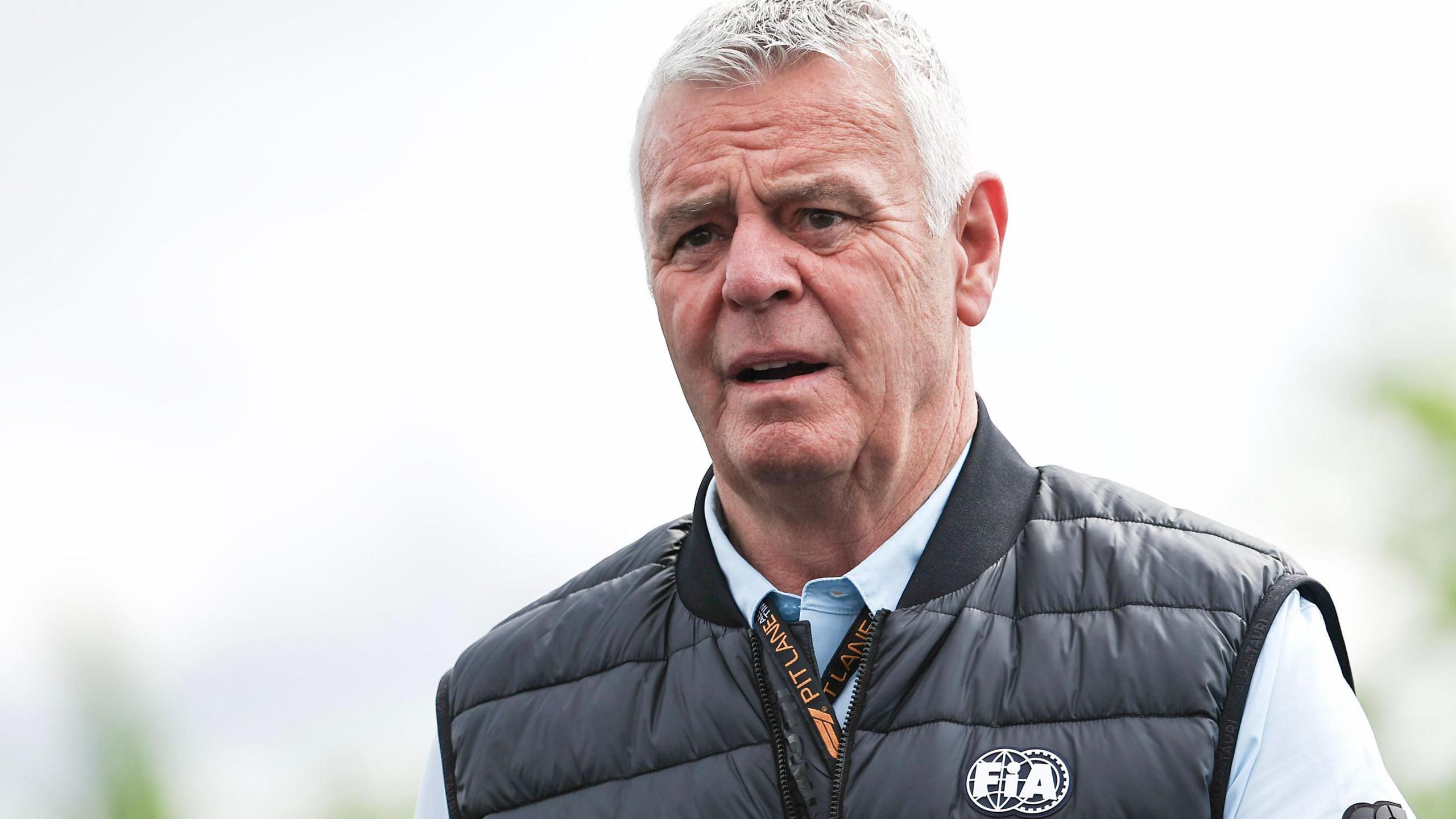
Having just turned 70, Derek Warwick has been reflecting on his life and death career in motorsport.
Regarded as the best British racing driver never to win a Grand Prix, Warwick has seen the highest of highs and the lowest of lows – from winning at Le Mans to seeing his younger brother killed in the sport he still loves.
“When drivers were killed – I’ve actually held two of them in my arms not as they were dying, but they died afterwards – to be able to race the next day you’ve got to be a certain sort of person,” says Warwick as he remembers the ’10 or 12′ drivers the sport lost during a Formula One career that spanned 12 years.
Putting them in ‘the safe’ in the back of his mind was the only way he was able to get back on the track after a fatality says Warwick, who drove for Toleman, Renault, Arrows and Lotus in an F1 career that began in 1981.
“You can’t just jump in a car and drive again, you’ve got to put them in this box in order to to be able to forget them,” he continues.
“Especially Paul. I’d put him so deep in in my safe that on a Sunday night when I’d normally let the tragedy out, I couldn’t remember him.”
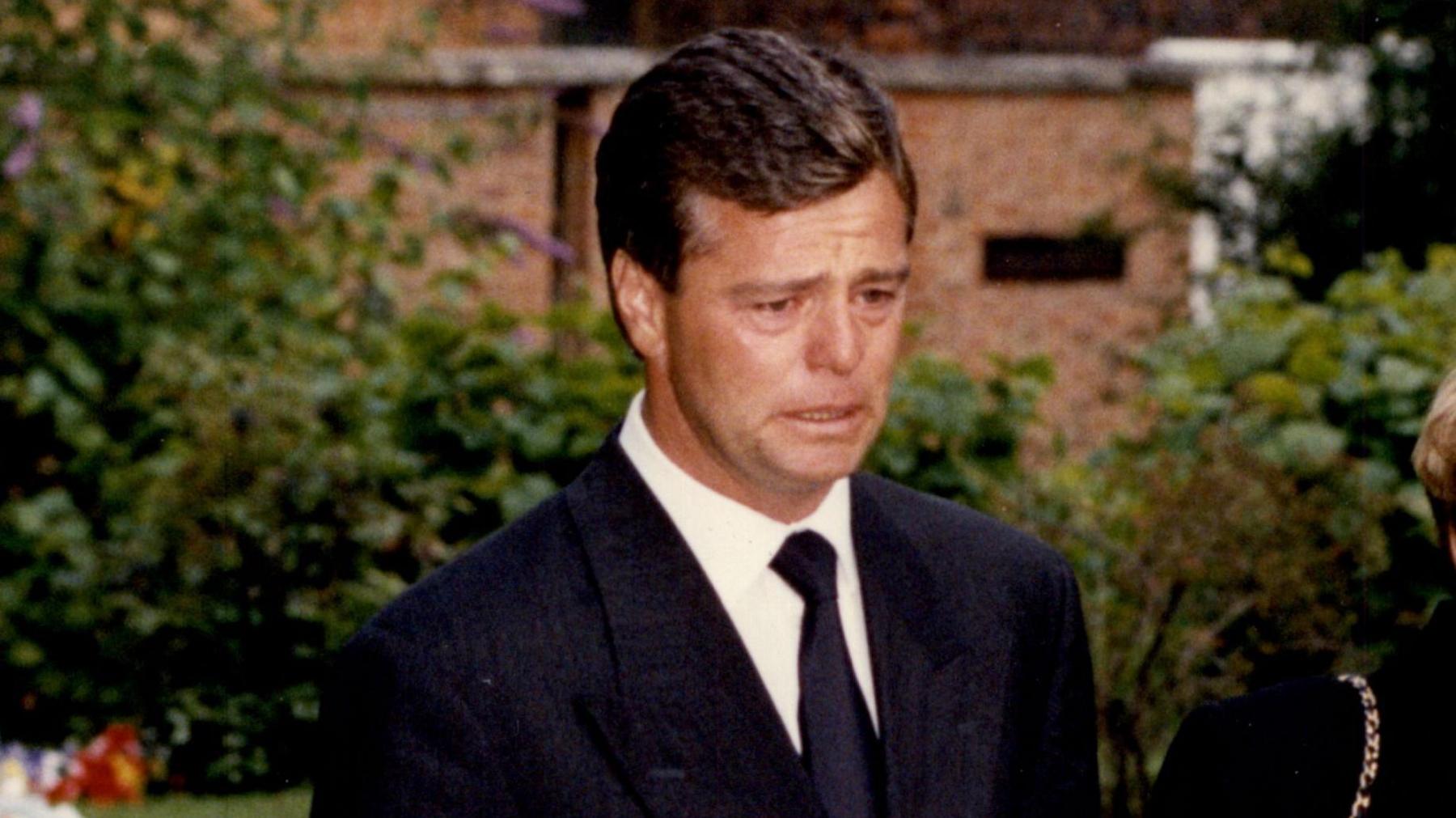
Paul was Warwick’s 22-year-old younger brother who was killed in a crash at Oulton Park while racing in the 1993 British Formula 3000 championship.
It led to a family meeting and his mother eventually persuading the family that Derek should carry on – beginning with some testing for Jaguar a week or two later.
“I went and it was tough the first day, I had a big accident the end of the first day in this secret test at about 220 miles an hour and the rear dampers broke and spun off,” he recalls.
“I just went to the hotel and cried, and about four or five o’clock in the morning I just looked in the mirror and said ‘Derek, what are you going to do? You’ve either got to pack your bag, go to the airport, go home and finish motor racing here and now because obviously you can’t do it’.
“‘Or you’ve got to put Paul back there in the safe and get out there and do it, and that’s what I decided and I went out there and broke the lap record and the rest is history.”
‘It was full of tragedy, but it was also full of fun’
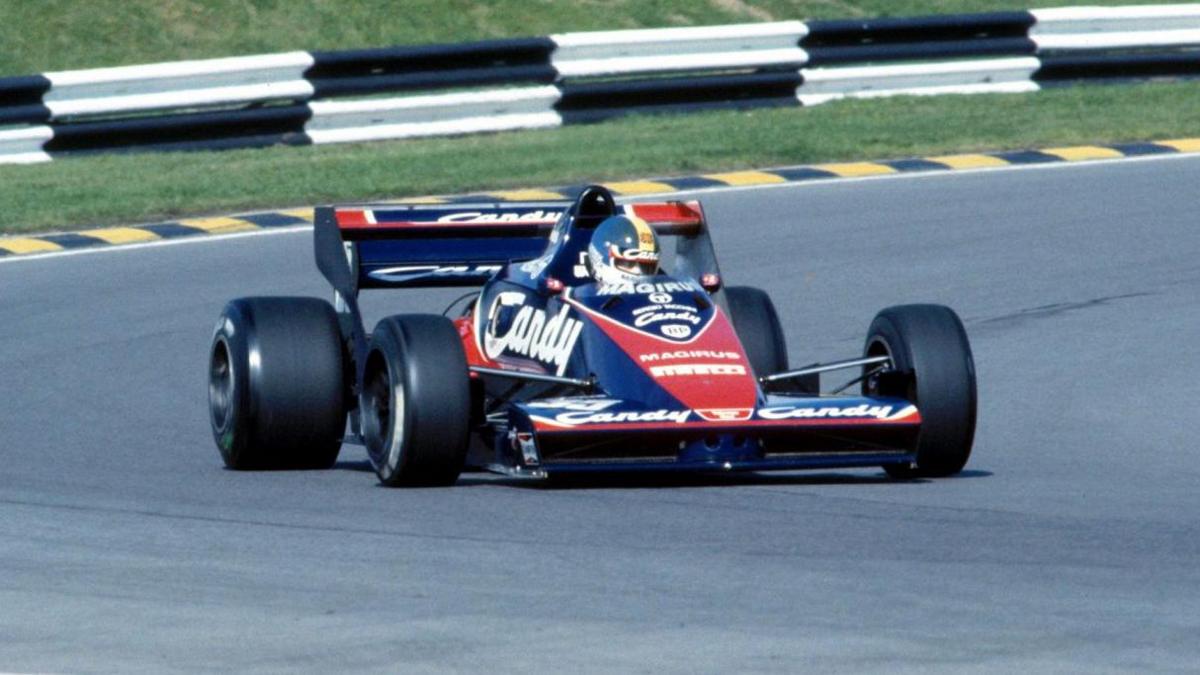
Warwick began his career racing cars and trucks in a field next to the family trailer company, egged on by his uncle Stan, who Warwick describes as ‘an utter nutter’.
But Warwick found he had a talent behind the wheel, winning the 1971 English Superstox Championship aged 16 before progressing through Formula 3000 and Formula Three, before getting his break with Toleman in 1981.
He raced in some of the glory days of Formula One – the likes of Ayrton Senna, Alain Prost, Nigel Mansell, Nelson Piquet and a young Michael Schumacher are among those Warwick has shared a grid with.
His best season was 1984 when he finished seventh in the World Championship with Renault, making the podium four times including second-placed finishes on home soil at Brands Hatch and at the Belgian Grand Prix at Zolder.
“When you’re a racing driver you only want to win, and as you go up the levels winning is less and less because every time you make a step up, there’s people who are as good if not better than you,” says Warwick, who is recalling his career in his autobiography ‘Never Look Back’.
“So you’ve got to try and find that edge and find a way of winning. I didn’t win in Formula One, as my critics would often say, but you know what I can look back very proud and say I had a great career, an amazing career.
“It was full of tragedy, but it was also full of fun. We enjoyed our motor racing, we had fun, I’m not so sure today’s racing drivers are having the same fun as we did back then.”
Winning Le Mans and keeping drivers safe
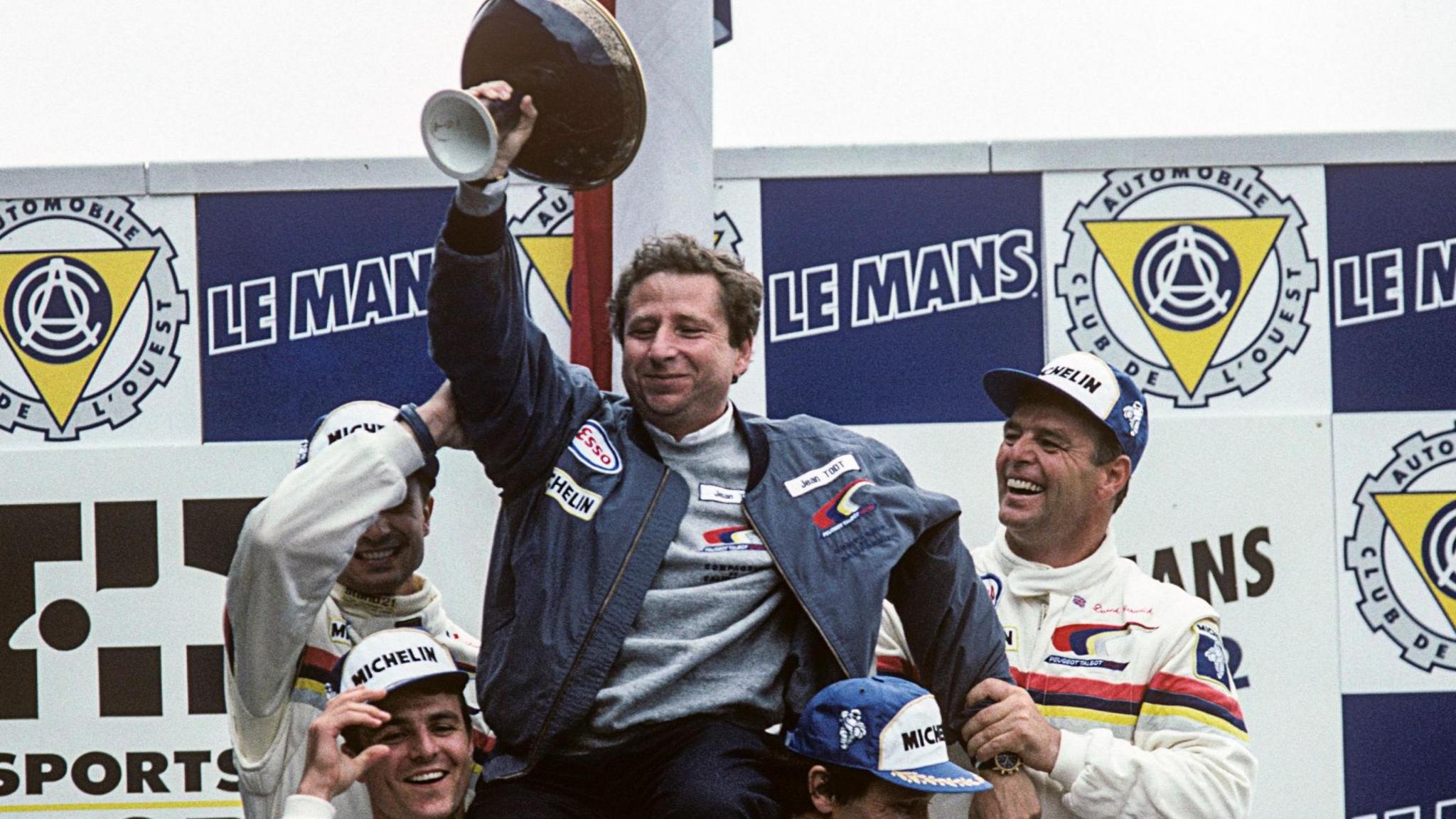
Warwick finally won a world title in 1992 when Jean Todt – who would go on to be team principal at Ferrari during Michael Schumacher’s dominant spell with the team and then later lead motorsport’s world governing body the FIA – signed him for Peugeot.
Three victories – including the 24 hour race at Le Mans and the 100km of Suzuka – and two more second places saw the team top the classifications.
It allowed Warwick to dedicate a title to his brother Paul, who had posthumously taken the British Formula 3000 championship a year earlier having won the first five races of the season.
“We went to Le Mans and won the 24 Hours Le Mans – you couldn’t write it, it was beautiful,” he continues.
“I wanted to pin something on Paul, I wanted something big to clip on to his name and winning Le Mans and then the World Championship in the same year was sensational.”
In retirement Warwick has balanced running a car dealership in Jersey with roles as a steward for Formula One and a stint as president of the British Racing Drivers’ Club.
But perhaps his biggest impact has been on improving the safety of the sport in the wake of Paul’s death – joining the safety committee of Motorsport UK and helping improve the circuits British drivers race around.
“People like Jean Todt have done so much, spent so much money to improve circuit safety first of all, but then also car safety,” Warwick adds.
“These guys now are in a monocoque, they’re in a safety cell, the last thing that breaks in a Grand Prix car now is the car, the chassis, whereas one of the first things that broke in our era was the chassis – and then quite often it would catch fire.
“Now they’ve got plugs that seals the fuel as soon as you have an accident and the cars are just a lot safer.”
‘I’m very happy with my life’
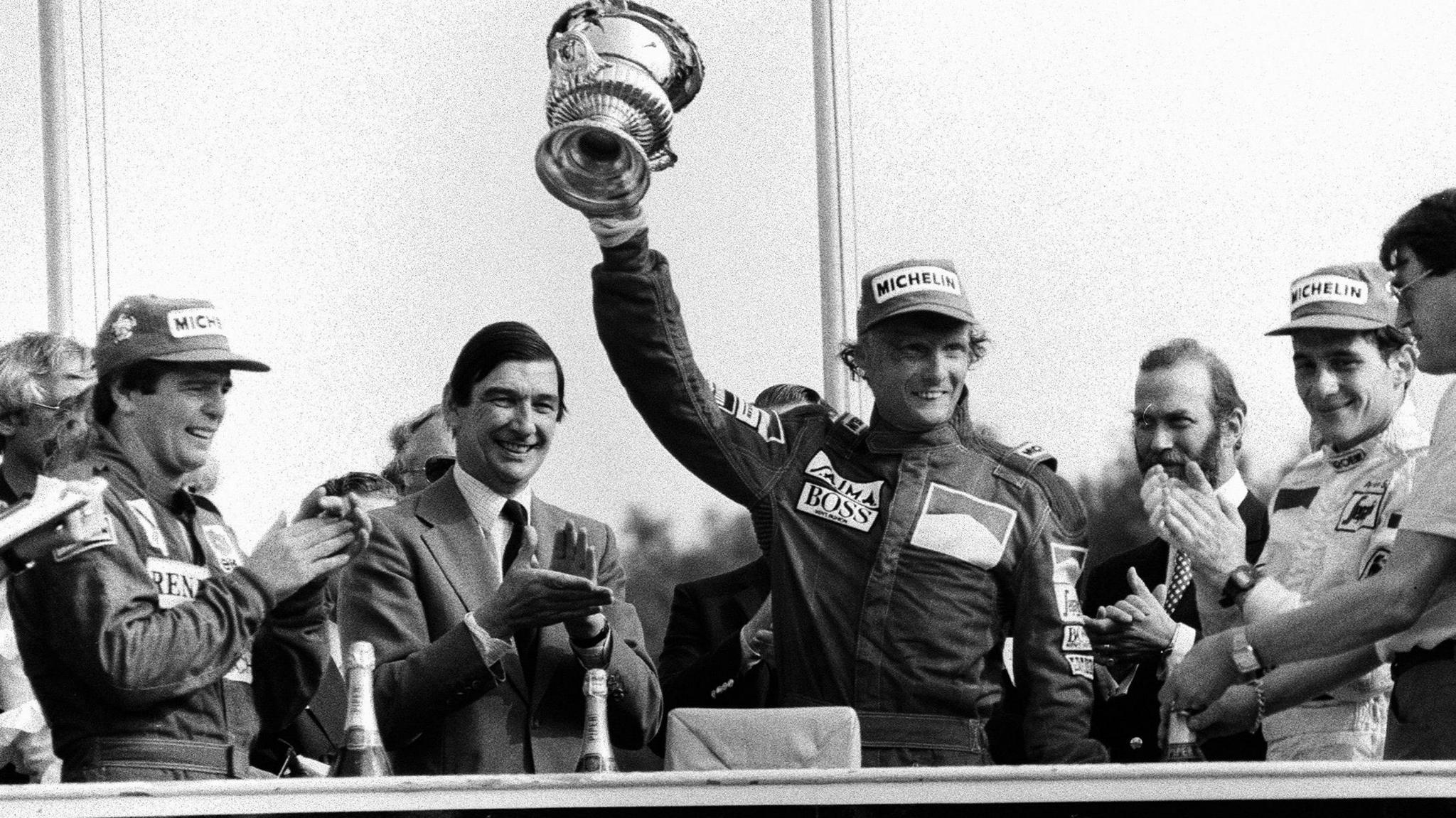
Despite seeing so many people die competing in the sport they love, Warwick says he has ‘never broken a fingernail’ during his career.
That is despite some spectacular crashes such as one at the Italian Grand Prix at where he flipped at the Parabolica on the opening lap.
In another during practice at the German Grand Prix in his final season in 1993 he tore off the wheels from the right side of his Footwork Mugen and ended up upside down in the run off as Jean Alesi, Gerhard Berger and Aguri Suzuki came to help the marshals.
On both occasions he got into the spare car and took part in the race.
But his need for speed has finally been satiated and he has no plans to get back into a racing car, either for fun or as part of a historic racing series.
“That fingernail is still there and I want it to stay in one piece,” he says with a smile.
“I’ve been at the very top of motorsport, I’ve had the best mechanics working on my car, the best engineers working on my car.
“I’m very happy with my life. I love the garage here in Jersey, I’ve been here for 40 years and I love being here and I’ve got a great life. So why do I want to risk it any more?
“My satisfaction now is helping others, and I’ve put a lot of work into that.”
